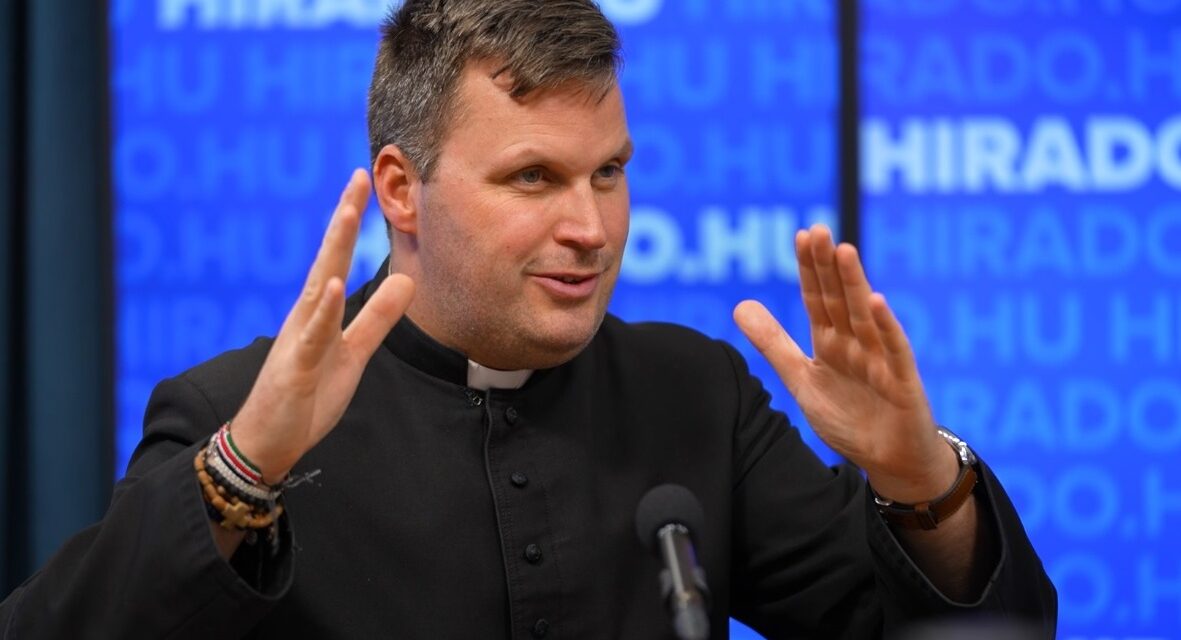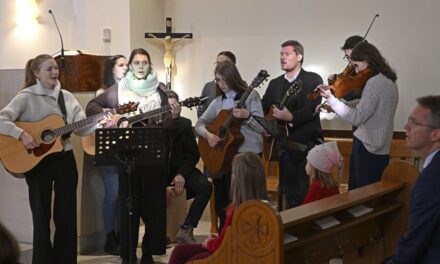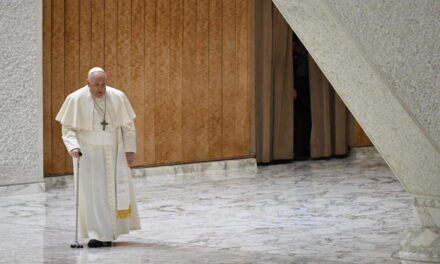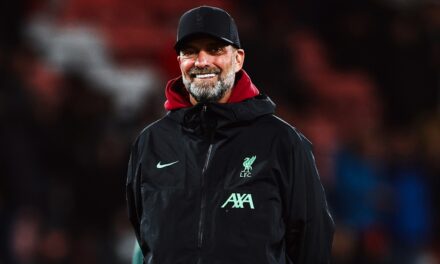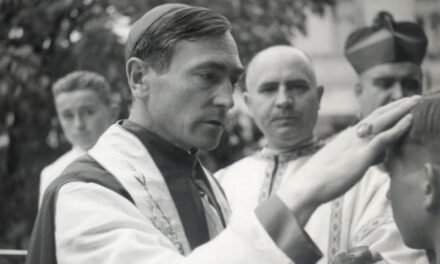"If we understand the true message of Easter, then it will not be just a four-day wellness weekend for us" - the staff of hirado.hu talked about Easter with the parish priest Gergő Bese from Dunavec and Szabolcs Koppány Hajdú, the reformed priest of Lovasberény.
- In order to understand the true essence of Easter, it is also important to talk about the period of Lent. How do you see, do we have a need to embrace fasting, or do we currently treat it more like a cleansing course, a challenge, a release from our addictions?
- Hajdú Szabolcs Koppány: Many people think that fasting is the period when I have to deny myself certain things. One can list for days how many things are worth denying ourselves. And at the end of the day, one becomes a listless, mentally and spiritually tired person. Because who among us likes to spend his time taking stock of what not to do? I like to turn it around and ask this question about fasting, what is the extra thing that I can add to my life during the fasting period? Of course, I have to empty my life first. We used to give the example of the glass of water to the children at our school. If the glass is full and I want to fill it with fresh water, I must first pour the old water out of it, which may already be old and rotten, and only then can it receive the new water. So somewhere I would approach fasting from here, and then it might not seem like such a difficult thing to absolve.
– Gergő Bese: Speaking of the children, I put it to the religious teachers that it is like a challenge. And they love them very much.
In my opinion, fasting is a struggle between the will and the body.
because I try in vain to pour fresh water into that glass, if my body and my desires are stronger than my will. The point is precisely who is in control: my body controls my will, or vice versa. The moment my body and instincts drive me, that's when control slipped out of my hands. When there's a bar of chocolate, I say that I'd rather offer this to the children and the needy after the holidays, but my salivation is so strong that I prefer to unwrap it. So what was stronger now, my determination or my desires? Well, this is what I can test my strength in during the forty-day fasting period, and I have to work and improve myself where I am weakest.
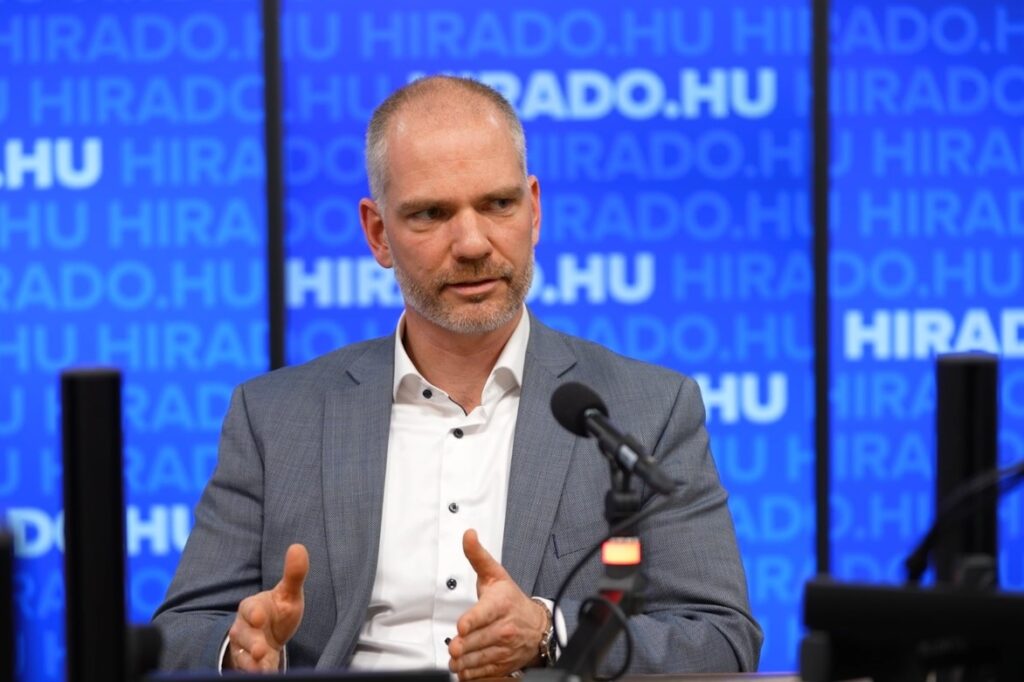
Hajdú Szabolcs Koppány, Reformed priest of Lovasberény, dean (Source: hirado.hu)
– What is the true purpose of fasting in the life of a Christian? An outdated ritual or a tool for introspection and renewal?
- Hajdú Szabolcs Koppány: I think fasting can be successful if I dare to set a goal higher than myself. Whether I eat less chocolate or use my cell phone less, these are all very good things, but they are about me. The resurrection, well, it's not about me anymore. At the Resurrection, I celebrate the Christ who died and rose again for me. True success is when a person can devote his time and energy to a goal higher than himself. I shift the focus from myself to someone else who is bigger than me, who is the subject of my faith, and for example, I spend the time freed up by abandoning my mobile phone to study the Bible, what it means to me, say the person of Christ and my belief in the resurrection. For me, the two things are in balance.
- Gergő Bese : In the life of our church, two big feasts with tents are preceded by a period of fasting. We tend to experience Advent much more cheerfully, even though it is also a fasting period full of sacrifices, but people love it much more than Lent. The grace period before Easter helps me to reprogram my schedule a little. When I do it out of habit, I routinely live my everyday life like a machine, well, this period is trying to sort that out. But fasting is also about what I can save for after Easter? For example, I keep the Friday fasting days so that I pray more, don't eat meat, or give up some pleasure that was important to me before. The greatest mission of Lent is therefore whether it will have an afterlife.
- Man is made of body and soul. It is quite obvious that we have started to deal with our bodies. We are interested in a healthy lifestyle. But will the time come when we also pay attention to our souls? Or am I being overly optimistic?
– Hajdú Szabolcs Koppány : I think life forces it. It is quite natural that as long as a person is young, strong and feels that the devil is here for me, I will deal with anyone, then it is less likely that he remembers that there may be connections or dimensions around him that he cannot detect with his usual senses. Then, as time goes by, life brings challenges, struggles, and tasks one after the other, when you suddenly feel that, oops, I can no longer solve this routine. His methods, the way he has led his life, his marriage, and his business, are not enough now, because he is facing something bigger than himself. I read with Jung that many of his patients came to him with the dilemma that here I am at the age of forty, I have everything. Why should I get up from tomorrow? For another trip, another house, another car, or what? Those who, in this dilemma, set off towards the transcendent and began to think about whether there could be a higher meaning to life, which they had not dealt with until now, saw a kind of calming down in their lives, or their wrinkles smoothed out. And those who chose the path of one more car, one more trip, remained in this frustrating uncertainty that what is the meaning of life then?
– Gergő Bese : The soul calls out for help and indicates when it is in complete decline. The harmony of body and soul builds a person. If one overdevelops and the other lags behind, there will be very serious cries for help. Such are psychosomatic diseases, which arise from a crisis of the soul. Just think about our immediate environment or our own family members, how many people with high blood pressure, diabetes, depression or even suicide are among them. We Hungarians lead the world ranking, for example, in terms of the proportion of suicides, based on the population. So we should really pay attention to the voice of our conscience! Many people envy Catholics who have the sacrament of confession. Catholics come there, weep, confess their sins, and then receive absolution. In the confessional, we experience the birth of many new lives, and especially the way people let go of certain things that they have been clinging to.
– How do we Europeans and Hungarians celebrate our holidays? Can we celebrate at all? Are our holidays important to us?
– Gergő Bese : It depends. We love Christmas very much because it is "chill-vill", caresses our souls, and everyone loves everyone for two days. And then afterwards we forget everything, just as we throw away the tree, we throw away all the emotions from this holiday. The gift, the material, became important and not the spiritual message. It is visceral in man that he wants to get out of everyday life, he longs for a holiday, which is why the modern world creates artificial holidays for him: Valentine's Day or Halloween, because from a consumer point of view, something can be done with them. So the content of our holidays fades more and more, we like to celebrate, but in a different way than in the past, in a more tangible, forint-denominated form.
– Hajdú Szabolcs Koppány : In the past, man lived in symbiosis with the world that surrounded him. He saw how small a speck of dust he was, and that all he could do was sow the seed, and then whether the sun or the water would be enough for it, whether the birds would come and pick it up or not, was no longer up to him. it depends. He gave thanks for the harvest and for having something to eat. He felt that all this did not happen by himself and that it was worth celebrating. Today, people have become urbanized, and bread is off the shelf. I will never forget when we started building the school garden with the children in our village church school as part of the technology class. We had to start with this being the rake and this being the hoe. Although we live in a village, the children do not yet have this knowledge. Then how could I understand the great connections of life? We must return to the roots!
– Gergő Bese : In order to be able to celebrate, we need a community. If someone does not belong to a church community, it is difficult to explain to them what to do with Easter or Pentecost. The average person really doesn't even know how to celebrate Easter completely and cleanly, without mixing it up with bunnies, eggs, and sprinkling. These are beautiful and important Hungarian traditions, but they do not help us understand the origin of Easter. To do this, you have to belong to a community that still remembers what the holidays are about, be it Christmas, Easter, Pentecost, or, say, a christening or a funeral.
– The role of parents is also important, do they pass on these family customs and church traditions to their children, do they teach them how to celebrate?
- Hajdú Szabolcs Koppány : Just as we read in the Bible the call from the Old Testament that "you fathers pass on knowledge, pass on knowledge, one generation to another, pass on what great things God has done for us". This must be there, like the prepared ground in the heart of the new generation, which can then receive the divine word, the seed. Every civilization has invested an amazing amount of energy in passing knowledge from one generation to the next. However, where do young people get knowledge from today? In today's society, teenagers no longer see the generation before them as reference persons, but their contemporaries. Dad doesn't understand what's going on in the online world, only young people understand that among themselves. Well, they still don't know what the essence of the holiday is, so it's like the blind leading the ignorant.
– Gergő Bese : Of course, church schools are an exception to this, but in public schools I am constantly faced with the fact that we are preparing for Advent and Lent with the children, and the very essence of the holiday is lost because it falls on a school break and the parent does not even bring them to mass at Christmas , nor the child at Easter. In this way, every holiday is broken, it cannot be fulfilled, because the child cannot experience the essence, and then only when school starts again. The parent is absolutely not interested, and the child is left with a void, a waiting for a miracle. It's like a March 15th celebration that you spend weeks preparing for, and then suddenly they tell you that you can't perform. You can only recite the poem to your mother at home, only you can show her your beautiful dress.
- Public discourse often refers to Christmas as our biggest Christian holiday. It's not like that though. Why is Christmas so important?
– Gergő Bese:
For the consumer society, Christmas can be better sold with a cute baby Jesus. Easter is less marketable with its bloody crucifixion, denial, and betrayal.
The consumer world could not settle on it like that, so we managed to keep the celebration of the resurrection relatively sterile. Christmas was completely screwed up. Just think of poor St. Nicholas, who was a real-life bishop, and they turned him into a big-bellied, bearded clown sliding down the chimney with the "ho-ho-ho".
– Hajdú Szabolcs Koppány : Obviously, there is a deeper layer to this, and the two together provide the answer. Because while we know what to do with birth, because we have experienced, seen, lived through, but no one has seen such a thing, that someone died and came back. We cannot identify with it because we cannot absorb it with our mind and senses. But there is faith, like a sixth sense, with which you can experience the resurrection.
– Gergő Bese : Once a mother told me how she tries to bring the holiday home to her home, how she can make it an experience and "human smell" for her children. For example, they hold Easter dinner on Maundy Thursday, eat the same food as at the last supper, then make a bunker-like holy tomb in the room, so they live the events of the holy three days in the family, and then they go to mass. You can hear so many good ideas from Christian families, which can be used to make Easter acceptable for children as well.
If they learn the message of the resurrection, it won't just be a four-day wellness weekend or spring gardening for them.
– How do you see chocolate bunnies and wellness weekends completely covering up the cross?
– Gergő Bese : I'm sure not, because the message of Easter is much deeper than being able to cover it up. The moment I am in pain, I feel the cross on my shoulder, from then on I begin to identify with Christ's suffering in my suffering. Or take a mother who has to experience the suffering of her own child, when she is on drugs, when she is an alcoholic, when she is in a bad marriage, when she is in prison. These mothers will be like Mary standing at the foot of the cross because their lives meet.
– Folk culture and church traditions live together in society. What can we do so that the search for eggs and the sprinkling do not overshadow the significance of the death on the cross and the resurrection?
– Hajdú Szabolcs Koppány : What is important to my children will be what they see as important to me.
Easter also includes sprinkling. Why shouldn't it fit in, why should these traditions be thrown out? You don't have to throw it away, you have to find a balance.
But in this, my personal example as a pastor, priest, father, and workplace boss is important. The greater the external resistance, the more we, Christian people, need to draw attention to the fact that there is more to this than a two-thousand-year-old custom. It is more than a dusty museum that we sometimes open and wipe the cobwebs off. There is life here, new life.
– Gergő Bese : I am a person who preserves and respects traditions, and not only because I come from the Galga region, where folk customs are alive and well. As a priest, I also took the minister boys after mass on Easter Monday to sprinkle the girls with buckets, recite poems and sing, because this has a very strong community-forming power. We consecrate new water on the night of Holy Saturday, so it is no coincidence that there is sprinkling afterwards, because water gives new life. Water therefore has its sacred significance, and the egg is a symbol of fertility. It is important to preserve our folk rites, because they fit beautifully with Christian traditions. It's no problem if someone gets in the car and goes to Hollókő on Easter Monday, but it doesn't matter if they look at the church in Ófalu as a museum or pray in it.
– What is the message of the holy three days for us?
– Hajdú Szabolcs Koppány:
Death comes to life, this is the experience of human existence, this is the order of human existence; after death comes life, and this is divine existence, God's order.
Our human experience and knowledge are so limited and so limited. People say: I believe it when I see it. This sentence in itself is meaningless, since what I see is not to be believed, since it is right there in front of me. Regardless of this, people reject out of hand even those thoughts that they do not know what to do with, that do not fit into their interpretation and their hearts. Faith is the sixth sense with which I am able to understand that after death comes life. This is what the Easter story is about. As a Christian, it all depends on what I think about the resurrection, whether I believe that it happened that way with the Lord Jesus Christ. Until a child is born, the womb means the world to him. That's the reality. There is a nice little story when the twins in the mother's womb are talking and one of them asks if you think there is an outside world? To which the other answers, how about that? Who has come back from there yet? This is exactly the same conversation going on at Easter, among so many people. There is a scene in one of the Indiana Jones movies where the character comes to a chasm and has to cross it. "Step on it, believe it, the bridge is there, it's just invisible," is the encouragement. And you only find out if there really is a bridge there when you step on it and experience that it is there. We often show children this little scene, that this is faith. I can't prove it, I can't even see it with my eyes, but I step on it and it's there.
– Gergő Bese : For me, the message of Easter is that we should not spare suffering and only celebrate the Resurrection, because then our holiday will be truncated. That is why I encourage the faithful to live through the holy three days. For example, go through all fourteen Stations of the Cross, because there is definitely a station that will find you full in your current life situation. Let's not let this be left out of our celebration, because then we won't be healed, we won't be able to accept our cross that we carry. On the night of Holy Saturday, the feast of the Resurrection, let us dare to enter the light from the darkness.
Let us bring the light of Christ as lanterns into our workplace, school, and family, and carry the light of the resurrection.
– How can we make the message of Easter more personal when the message of Easter seems so intangible?
– Gergő Bese : Statistics support that a believer is happier, lives longer, is more optimistic and heals sooner. Because a believer views death differently than a non-believer. If we do not believe in the invisible and the priests, then at least we should believe in the men of science who have proved that
families that pray together have the lowest number of divorces. In those families where the child is welcomed with happiness, the child is not a burden and the parents live a much more balanced old age.
Hearing the statistics, we would be fools to choose grayness over a more cheerful and joyful life.
– What can a Christian or anyone who is looking for hope and the possibility of starting over during Easter do in a world where crises, epidemics, and wars follow each other seemingly without interruption?
– Hajdú Szabolcs Koppány : The question is whether this person has reached the state of mind when he feels that now something else is needed, something more is needed, but he cannot move forward on his own. It's like when I go under the water and play with my brothers and sisters who can stay under the water the longest. Then, after a while, the person's lungs almost burst, and then suddenly I emerge from the water, inhaling my lungs with clean, fresh oxygen. Do you yearn for something to change like the underwater man for oxygen? If so, find a Christian church where you can have this experience.
– Gergő Bese:
Let's try to clean our glasses a little and not just notice that there is an epidemic and war in this world. Let's also notice the good that surrounds me: that I got up, that I have something to eat, that I have a roof over my head, that I have loved ones, that I can help my neighbor, and the line could go on for a long time.
Let's recognize how many treasures we encounter in our lives, in our everyday lives, and then we will smile more and be nicer to people.
The full interview can be read on hirado.hu
Cover photo: Bese Gergő parish priest from Dunavec (Source: hirado.hu)

